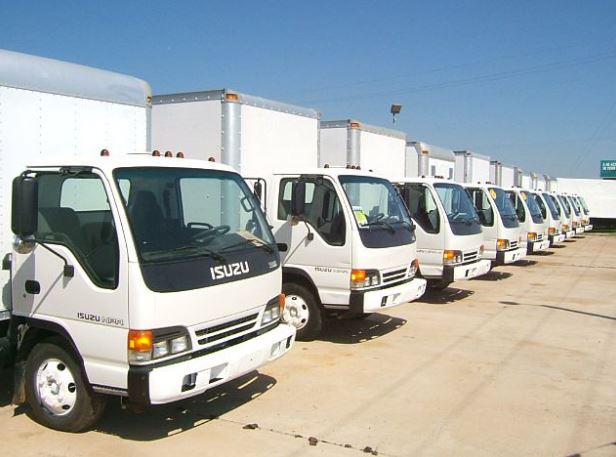5 IMPORTANT THINGS YOU SHOULD KNOW ABOUT THE MCS-90 Filing for your big rig trucking operation or any trucking for hire operation with filings.

Failure to understand the MCS-90 endorsement may result in a significant uninsured loss, possible allegations of bad faith claims handling, or allegations of an error or omission against an agent or broker.
Get NJCAIP Truck Insurance quote for Semi’s, Box Trucks, Medical Transport and many more business types. If you have been in business for a year you may want to visit NJ Big Rig Insurance Brokers a proven leader in For Hire Truck Insurance.
Below are five very important things you should know:
1. The Background
Congress passed the Motor Carrier Act of 1980 to reduce the regulations that applied to for-hire motor carriers. The goal of the Act was to promote more competition among transportation companies. In particular, price competition was introduced as part of the Act by allowing motor carriers to publish and use their own rates for hauling freight, replacing the mandatory use of rates published by a rating bureau. Insurance companies often differ in the way they address compliance with the regulations, which may create additional misunderstandings about the Act’s requirements.
2. The MCS-90 Filing Is Proof of Financial Responsibility
While the Act was generally intended to ease regulations, it also imposed additional requirements on motor carriers that transport property.
Specifically, the Act requires that a motor carrier’s motor vehicle “has in effect the minimum levels of minimum responsibility” and that proof of that required financial responsibility be maintained at the motor carrier’s place of business.
The MCS-90 filing endorsement is the required proof that the motor carrier is in compliance with the federal regulations. However, attachment of the MCS-90 to the motor carrier’s Business Automobile policy (and possibly to the motor carrier’s excess or umbrella policy) does not necessarily mean that the motor carrier has complied with the minimum level of financial responsibility requirement.
In other words, the endorsement is not a warranty by the insurer that the limits shown meet federal minimums; it is the motor carrier’s obligation – not the obligation of the insurer – to determine its required limits of insurance.
Obtaining the MCS-90 may be but one step in the motor carrier’s overall responsibility to meet insurance requirements. For example, an interstate motor carrier’s insurers must file the appropriate certificates of automobile liability insurance (BMC 91 or BMC 91x) with the Federal Motor Carrier Safety Administration (FMCSA), the authority within the Department of Transportation that regulates motor carriers.
3. The MCS-90 Applies to Intrastate and
Interstate Commerce
It is often mistakenly assumed that the federal regulations, and thus the MCS-90, apply only to motor carriers engaged in interstate commerce. The MCS-90 clearly indicates the federal requirements apply to motor vehicles based on the commodity transported (such as hazardous substances or materials), even if the motor vehicle is not for-hire (private) and even if the motor vehicle is operating in intrastate commerce.
For example, a petroleum wholesaler that delivers gasoline or diesel fuel to their in-state customers via their own 10,000 gallon tank trailer would be an example of a private carrier operating intrastate. The federal regulations apply to this motor carrier as respects financial responsibility and proof of compliance in the form of the MCS-90 endorsement.
4. The Insurer’s Obligation to Pay Is Broad
By issuing the MCS-90 endorsement, an insurer is bound to pay according to the terms of the endorsement for public liability “resulting from the negligence in the operation, maintenance, or use of motor vehicles subject to [the Act’s] financial responsibility requirements.”
Public Liability is a defined term and means “liability for bodily injury, property damage and environmental restoration.”
Environmental restoration is “restitution for loss, damage, or destruction of natural resources arising out of the accidental discharge…into or upon land, atmosphere, watercourse, or body of water, of any commodity transported by a motor carrier. This shall include the cost of removal and cost of necessary measures taken to minimize or mitigate damage to human health, the natural environment, fish, shellfish and wildlife.” In other words, environmental restoration requires the insurer to pay damages from contamination/pollution-type claims, provided the contamination or pollution is from a commodity hauled in the motor vehicle.
This concept – the insurer is primarily liable – is the very point of the endorsement. Once the insurer issues the MCS-90, the FMCSA is assured that the insurer will pay – and the goal of financial responsibility is met.
Limitations
Some limitations do apply to the insurer’s obligations. The insurer is not responsible under the MCS-90 to pay for injuries to (or death of) the insured’s employees nor is the insurer responsible to pay for damage to cargo.
5. The Insured’s Obligation May Include Reimbursing the Insurer
Of equal, if not greater importance, is that the MCS-90 endorsement is an obligation of financial responsibility only, not insurance. That is, even though the insurer is obligated to pay, all terms, conditions, exclusions and limitations that are contained in the policy to which the MCS-90 is attached remain binding between the insured and insurer.
For example, if the insurer is required by the MCS-90 to pay damages for environmental restoration, but the Business Automobile policy to which the MCS-90 is attached excludes pollution, the insurer must still pay for the environmental restoration costs. However, in this example, not only does the insurer have a contractual right to full reimbursement, the insured agrees to make such reimbursement to the insurer for such sums paid.
Although often overlooked or misunderstood, the MCS-90 is quite straight forward in its assertion that the insured reimburse the insurance company for payments made resulting from a violation of the policy.
Get commercial auto insurance quotes for your required MCS-90 document. We have the ability to get your Federal ICC filings submitted on the day you buy your policy in most instances.

We would like to thank the team at Big Rig Insurance Brokers for helping us parlay the information for the MCS90 and making it easy to understand.
